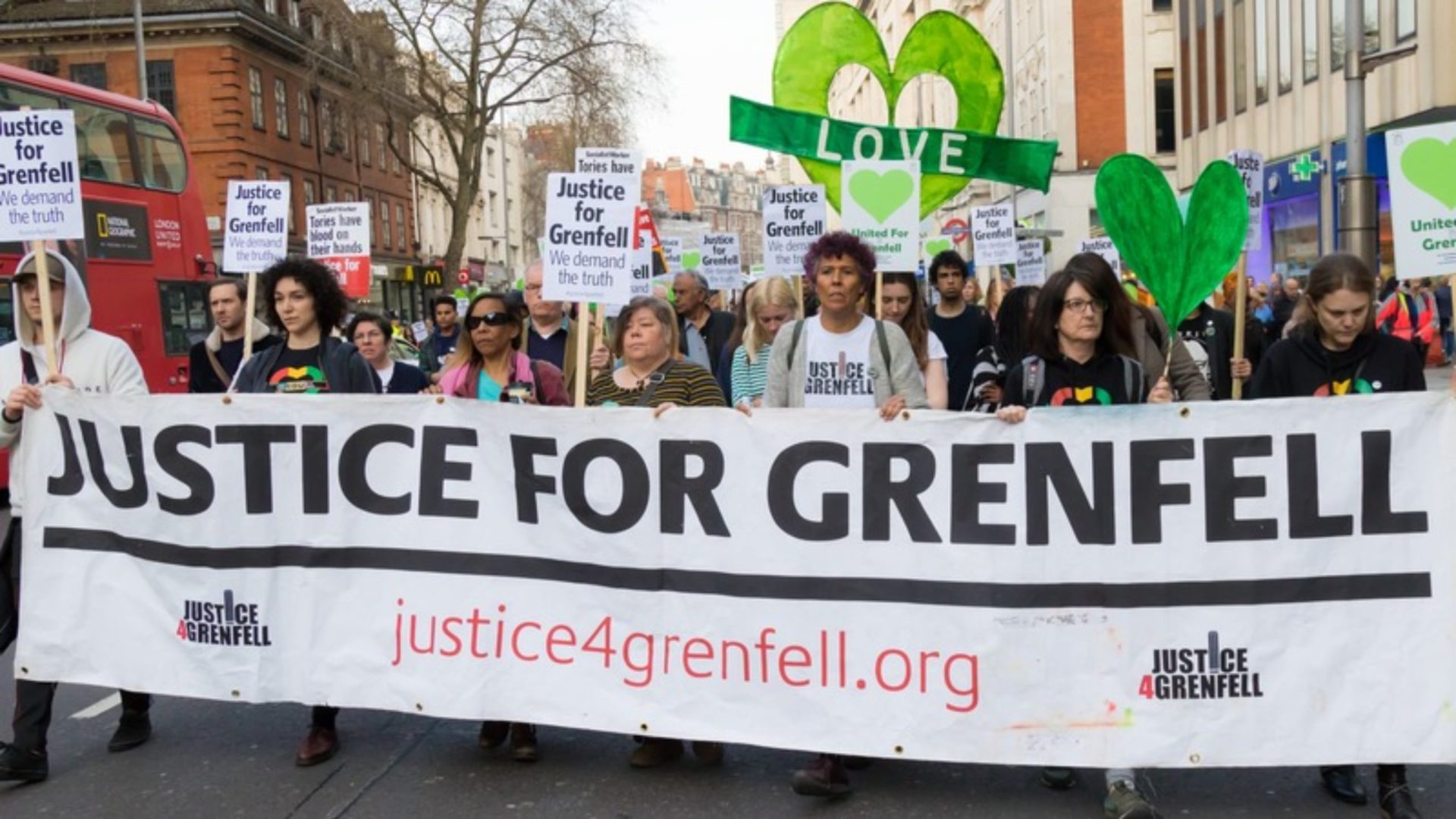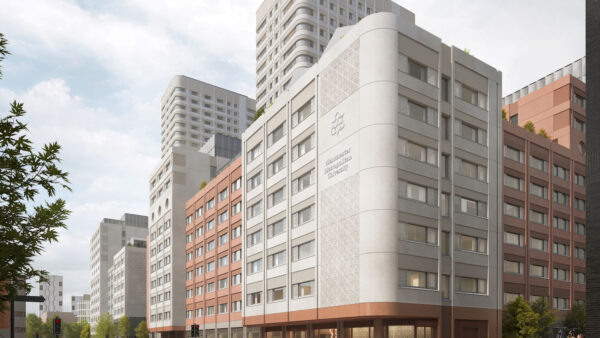
The Grenfell Inquiry published today (4 September) its second and final report into the circumstances that led to the fire that killed 72 people on 14 June 2017.
The 1,700-page document has a long list of recommendations, including the urgent review of statutory guidance (Approved Document B in particular) and to publish a revised version as soon as possible.
Here’s a summary of some of the other recommendations.
Expand the definition of higher-risk buildings
The Inquiry said that the current definition of higher-risk building under the Building Safety Act 2022 – one with at least seven storeys or at least 18m – is inadequate and calls for it to be urgently reviewed.
It said: “We do now think that to define a building as higher-risk by reference only to its height is unsatisfactory, being essentially arbitrary in nature. More relevant is the nature of its use and, in particular, the likely presence of vulnerable people, for whom evacuation in the event of a fire or other emergency would be likely to present difficulty.”
Create a single regulator for the construction industry
The Inquiry is calling on the government to bring together under a single regulator all the functions relating to fire safety currently exercised by the Ministry of Housing, Communities and Local Government, the Home Office and the Department for Business and Trade into one department under a single secretary of state.
“If a single body were responsible for all aspects of regulating matters affecting fire safety in the construction industry, that body should report to a single secretary of state answerable to Parliament for all aspects of fire safety,” it said.
“That should improve the quality of government by providing an administrative environment in which information can be shared more quickly and more effectively between teams responsible for different aspects of the work and facilitate communication between the regulator and the department.”
The new regulator “should also ensure that greater emphasis is placed on ensuring the safety of the built environment and that policy is developed in a holistic and coherent way”.
Appointment of a chief construction adviser
The Inquiry wants to resurrect the role of chief construction adviser to flag concerns about building regulations and the wider industry. It’s calling for the role to have enough budget and staff to advise “on all matters affecting the construction industry”, including monitoring all aspects of the government’s work relating to building regulations and statutory guidance.
Development of a construction library
The Inquiry is calling for the construction regulator to “sponsor” the development of a construction library to be used by building designers, similar to the cladding materials library set up by the University of Queensland in Australia.
“The Inquiry recommends the construction regulator sponsor the development of a similar library, perhaps as part of a joint project with the University of Queensland, to provide a continuing resource for designers.”
Inclusion of academia in the legislation review
The report said that “fresh minds are needed” to review and revise the Building Regulations and statutory guidance that is driven primarily by considerations of safety.
“We therefore recommend that, as far as possible, membership of bodies advising on changes to the statutory guidance should include representatives of the academic community as well as those with practical experience of the industry (including fire engineers) chosen for their experience and skills and should extend beyond those who have served on similar bodies in the past.”
Fire safety strategy
The Inquiry wants to make it a statutory requirement that a fire safety strategy produced by a safety engineer be submitted with building control applications (Gateway 2) for the construction or refurbishment of any higher-risk building and for it to be reviewed and resubmitted at the stage of completion (Gateway 3).
Create a body of professional fire engineers
The profession of fire engineers should be formally recognised and both the title and the function are protected by statute, the Inquiry said. This would be accompanied by the establishment of an independent body responsible for the regulation of the profession, definition of standards required for membership, maintenance of a register of members and regulation of their conduct.
The report added: “Over time, that would create a body of registered fire engineers who are capable of contributing to the design and delivery of safe buildings and of educating those construction professionals with whom they work in effective fire safety strategies.
“In order to speed up the creation of a body of professional fire engineers, we also recommend that the government take urgent steps to increase the number of places on high-quality Master’s level courses in fire engineering accredited by the professional regulator.”
The Inquiry also recommended that the government works with industry and professional bodies to encourage the development of courses in the principles of fire engineering for construction professionals and members of the fire and rescue services as part of their continuing professional development.
Introduction of a licensing system for principal contractors
A licensing scheme operated by the construction regulator should be introduced for principal contractors wishing to undertake the construction or refurbishment of higher-risk buildings.
Under this scheme, it would be a legal requirement that any application for building control approval for the construction or refurbishment of a higher-risk building (Gateway 2) be supported by a personal undertaking from a director or senior manager of the principal contractor to take all reasonable care to ensure that on completion and handover the building is as safe as is required by the Building Regulations.
Response on recommendations
As a result of the repeated government failures to learn and act on previous disasters, the Inquiry recommended that the government should be legally required to maintain a publicly accessible record of recommendations made by select committees, coroners and public inquiries, together with a description of the steps taken in response.
“If the government decides not to accept a recommendation, it should record its reasons for doing so. Scrutiny of its actions should be a matter for Parliament, to which it should be required to report annually,” it added.
Comments
Comments are closed.












Very pleased that all of this is now out in the open. So sad that such a tragedy for so many forces this issue. The costs of implementing these imperative changes needs to be factored in or made available so the checks can be made and comments made by qualified individuals. The power to enforce at all levels needs legislating for and the cost ring fencing as well.
It surprises me that the report does not recommend the HSE to have a formal place in determinations of fire safety particularly as it is used to assessing testing of materials for compliance with required fire ratings. Those tests include not only testing the basic material but also its configuration, which can be crucial.
At the planning application stage a council could require where appropriate that the materials and design configuration had been tested against an approved standard.
It seemed to be a more robust system under the Fire Precaution Act 1971 when the Fire Authority inspected the premise annually provided a certificate, while the local authority building control service would enforce the requirement of the building act and often work with the Fire Authorities. De-regulation of building control seems to have been detrimental to the expertise built up by local authorities who would often work with the Fire Service. Some things should be left with public bodies in my opinion. If this is a question of poor installation where was the control on quality to check fire barriers were installed correctly? I am sure defects would have been picked up under the older regime of local authority building control and who would have a better handle on development in their patch and to some degree police it.